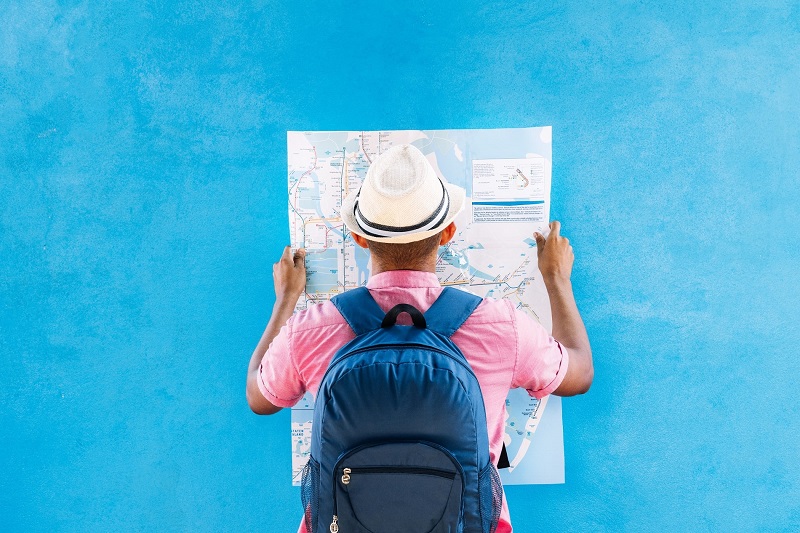When I first set my sights on the majestic Himalayas, I imagined snow-capped peaks and serene landscapes. But what I didn’t foresee was the challenge of packing for such a diverse and unpredictable environment. Whether you’re trekking through lush valleys or scaling dizzying heights, packing smart is your ticket to a hassle-free adventure.
I’ve learned that the right gear can make or break your trip. It’s not just about stuffing a backpack with essentials; it’s about striking the perfect balance between necessity and convenience. From layering clothes for fluctuating temperatures to picking the right footwear for rugged trails, each item in your bag plays a crucial role in your journey.
Join me as I share tips and tricks to streamline your packing process, so you can focus on soaking in the breathtaking views and creating unforgettable memories in the Himalayas.
Packing Smart: Essential Tips for a Hassle-Free Himalayan Trip
Embarking on a Himalayan adventure requires thoughtful packing to ensure comfort and convenience throughout the journey. Here are some essential tips I’ve gathered to help streamline the packing process.
Choose Versatile Clothing
Opt for layering to adjust to temperature changes. I recommend moisture-wicking base layers, insulated mid-layers, and a waterproof jacket. Select pants that double as shorts for versatility. Always include a woolen hat and gloves for cold conditions.
Prioritize Quality Over Quantity
Limit items to essentials, focusing on quality. A sturdy backpack, reliable trekking boots, and a durable sleeping bag are crucial. Spare socks and underwear, for example, are necessities. Quality gear enhances comfort and reduces weight.
Organize with Packing Cubes
Packing cubes bring order to chaos. They separate items by category, making access easy. I use them to group clothing, toiletries, and gadgets. This organization saves time during unpacking and repacking.
Pack a Portable First Aid Kit
Prepare for minor injuries with a travel-sized first aid kit. Include band-aids, antiseptic wipes, and pain relievers. I also add altitude sickness medication as a precaution, given the high altitudes in the Himalayas.
Bring Essential Gadgets
A high-capacity power bank and a solar charger are vital. They keep devices charged during remote treks. A compact camera or smartphone with a good camera capability captures stunning landscapes. Also, include a reliable torch.
Include Nutritious Snacks
Energy bars, nuts, and dried fruits are perfect snack options. Pack them to maintain energy levels on long treks. They serve as quick nutrition boosts between meals, ensuring you stay energized.
Consider Sustainable Practices
Eco-friendly travel practices are important. I pack reusable water bottles and biodegradable toiletries. Minimizing plastic use reduces environmental impact, preserving the Himalayas’ pristine beauty.
Weatherproof Essentials
Waterproof dry bags protect electronics and clothes from rain and river crossings. I store electronics and important documents in these bags for safety. A compact poncho adds an extra layer of weather protection.
Document Storage
Keep travel documents in an accessible, secure pouch. I ensure my passport, permits, and cash are safe yet handy. This approach prevents unnecessary stress at checkpoints.
By focusing on these key areas, packing becomes less of a chore and more of a strategic plan, allowing for a smoother and more enjoyable Himalayan adventure.
Choosing the Right Gear
Packing smart for a Himalayan trip means selecting the right gear for the challenging environment. Effective gear choices ensure comfort and safety throughout the adventure.
Clothing Essentials
Layering is crucial when packing clothing for the Himalayas. Thin thermal layers help trap heat without adding bulk, making lightweight merino wool base layers an excellent choice. Mid-layers such as fleece jackets provide added warmth during colder moments. Outer waterproof and windproof jackets protect against unpredictable weather.
In addition to layers, moisture-wicking and quick-drying fabrics come in handy. They keep you dry and comfortable whether you’re facing unpredictable rainfall or sweating during a hike. A wide-brimmed hat offers sun protection, while a warm knit hat keeps your head cozy. Lastly, well-fitted gloves that offer flexibility and warmth are essential for hand protection.
Footwear for the Himalayas
Footwear selection is key to comfort and safety on Himalayan trails. High-quality hiking boots with ankle support protect against rough terrain. Opt for waterproof boots to keep feet dry during wet conditions. Consider boots with breathable membranes for optimal foot temperature regulation.
Wool socks offer cushioning and moisture-wicking properties, helping prevent blisters during long treks. Pack several pairs to ensure clean, dry options. Pair boots with gaiters to protect from snow, debris, and rocks. Lightweight and compact, gaiters add an extra layer of protection for the journey ahead.
Packing Techniques
Efficient packing makes any Himalayan adventure more enjoyable by reducing stress and enhancing preparedness. A strategic approach to packing maximizes space and minimizes hassle.
Rolling vs. Folding
Rolling clothes often beats folding for space efficiency, especially on longer trips. I roll lightweight items like shirts, pants, and pajamas to save room in my backpack. This technique also helps reduce wrinkles, keeping clothing ready-to-wear upon arrival. On the other hand, for bulky items like sweaters or jackets, folding can create neat layers within your bag. If I need to pack both rolled and folded items, placing folded layers at the bottom and rolled items on top keeps everything organized and accessible. Combining these methods based on the type and size of clothing optimizes packing spaces effectively.
Space-Saving Hacks
In addition to rolling, compression bags and packing cubes serve as great tools for organizing gear. I often use compression bags for bulky clothing, squeezing out excess air and creating more room for essentials. Packing cubes streamline organization, letting me categorize items like tops, bottoms, and undergarments, making it easier to locate what I need without rummaging through my bag. To further maximize space, I stuff smaller items such as socks or gloves into shoes. Wearing heavier layers while traveling reduces both bulk and weight inside your backpack. These handy tricks collectively create extra space without compromising on essential items for the Himalayas.
Health and Safety Considerations
Preparation for health and safety is crucial for a Himalayan adventure. Ensuring well-being amidst rugged terrains makes medical and hydration planning indispensable.
First-Aid Kit Necessities
An effective first-aid kit enhances preparedness. I always include adhesive bandages, antiseptic wipes, and a small roll of gauze to treat minor injuries. Pain relievers like ibuprofen help in coping with headaches from high altitudes. Adding antihistamines can alleviate allergic reactions. Blister pads provide relief during long hikes. Thermometers monitor body temperature, while tweezers remove splinters. Electrolyte tablets address dehydration effects. It’s beneficial to store first-aid items in a waterproof pouch, maintaining their usability in damp conditions.
How to Stay Hydrated
Hydration is key to combating altitude sickness. A sturdy water bottle, like one with a filtration system, ensures access to fresh water. I always aim for a minimum intake of three liters each day to stay energized. Electrolyte-infused water plays a pivotal role in restoring essential body salts lost through sweat. Monitoring urine color helps gauge hydration levels; pale yellow indicates optimal hydration. Even when temperatures drop, sipping warm, non-caffeinated drinks maintains fluid balance. Understanding and implementing hydration strategies prevent dehydration, enabling a safer and more enjoyable journey.
Tech and Gadgets
Exploring the Himalayas becomes seamless with the right tech and gadgets. Devices designed for adventure enhance safety and convenience amid the majestic landscapes.
Must-Have Devices
Bringing a smartphone with offline maps already downloaded keeps you on track even in isolated spots. A compact digital camera or GoPro captures stunning vistas and unforgettable memories in high definition. Don’t forget a lightweight e-reader or tablet filled with books, helpful for relaxation during downtime or for quick reference guides. Including a weatherproof digital watch with an altimeter and GPS functionality can provide vital information and improve navigation accuracy. For those into stargazing, a portable sky map app on your device lets you identify constellations in the clear Himalayan skies.
Battery and Charging Solutions
Power solutions that work efficiently in remote areas ensure devices are operational at all times. Consider a solar-powered charger, especially when sunlight is ample, to keep all gadgets charged without a reliable power source. A high-capacity power bank is essential, offering multiple charges for your phone or camera, providing a buffer when sunlight is scarce for solar charging. Plug adapters and multi-outlet power strips become crucial when urban charging opportunities arise, offering flexibility if outlets are limited. Always pack durable charging cables, as fragile ones often break on rugged trips. This approach ensures you maintain connectivity and power during your journey through the Himalayas.
Conclusion
Packing smart for a Himalayan adventure is all about balancing practicality with preparedness. By focusing on versatile clothing, essential gear, and efficient packing techniques, you can ensure a stress-free experience. Remember to prioritize health and safety with a well-stocked first-aid kit and hydration plan.
Embracing technology enhances both convenience and safety, letting you capture unforgettable moments and navigate with ease. With these tips, you’ll be well-equipped to enjoy the breathtaking beauty of the Himalayas without the hassle. Happy travels!










0 Comments